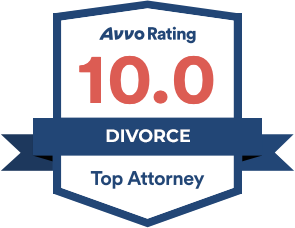
Charlotte Child Support Lawyers
What Are the Child Support Guidelines in North Carolina?
Charlotte, NC, has instituted a presumed child support calculation called the Child Support Guidelines in North Carolina. These guidelines for child support help determine appropriate financial support from one parent to the other. While the guideline calculation is a presumptive amount, either parent can ask the Court in Charlotte to deviate upward or downward from the Guideline child support obligations.
NC Child Support is set forth under three (3) different child support calculations based on the number of overnights the child spends with each parent.
- Worksheet A Calculation is used when one parent has “primary custody,” and the other parent has the child for less than 123 overnights per year.
- Worksheet B Calculation is used when both parents have “shared custody,” and each have the child for at least 123 overnights per calendar year.
- Worksheet C Calculation is used when parents have “split custody” of two or more children. For example, a parent has primary custody of one or more children. The other parent has primary custody of one or more children.
To speak with our experienced Charlotte child support lawyers, give us a call at 980-321-5590 or contact us online today.
Calculating Child Support in North Carolina
North Carolina child support is calculated by factoring in each parent’s gross monthly income from all sources, the number of children calculated for child support, and the number of overnights each child spends with each parent (based on whether your estimate will be made on a Worksheet A, Worksheet B, or Worksheet C). Child support in NC is also calculated on whether either parent has another child for whom they are responsible for supporting, payment of health insurance premiums, work-related child care costs, and other extraordinary expenses the parent pays child support.
Understanding the Child Support Calculation Process
Navigating child support can be complex, but understanding how child support is calculated can empower you during this process. In North Carolina, child support is determined using the Income Shares Model, which considers the income of both parents and the needs of the child. Our experienced attorneys at Miller Cushing Holladay PLLC are here to guide you through each step, ensuring that your child’s best interests are prioritized.
Key factors that influence child support calculations include:
- Parent’s Income: Both parents’ gross incomes are taken into account, including wages, bonuses, and other sources of income.
- Child’s Needs: The specific needs of the child, including healthcare, education, and other expenses, are considered.
- Time Spent with Each Parent: The amount of time the child spends with each parent can affect the support amount, as shared custody arrangements may lead to adjustments.
- Other Dependents: If either parent has other children or dependents, this may also influence the support obligation.
By understanding these factors, you can better prepare for negotiations and ensure that your child’s needs are met. Our dedicated team is ready to assist you in calculating the appropriate support amount and advocating for a fair outcome.
Click here to view the Full View the Child Support Guidelines and tables for North Carolina.

What Age Do You Stop Paying Child Support in North Carolina?
In North Carolina, the age at which child support obligations cease is typically when the child reaches the age of 18. However, certain circumstances may extend the duration of child support payments. Should the child still be attending high school with an anticipated graduation before reaching 18, child support may extend until the child graduates or reaches the age of 20, depending on whichever comes first.
Another example in which child support may continue beyond the age of 18 is if the child is deemed incapable of supporting themselves due to a physical or mental disability. In such cases, the court may order ongoing support to ensure the child’s needs are met.
Parents need to be aware of the specific circumstances outlined in their child support agreement and court orders. Seeking legal advice can clarify individual cases and help parents understand their rights and responsibilities concerning child support. For accurate and personalized information, legal guidance is essential, even if the general age limit is 18.
Common Mistakes People Make When Dealing with Child Support
Navigating child support can be challenging, and mistakes can have significant implications for both the parents and the child.
Here are some of the most common errors people make when dealing with child support:
- Delaying Modifications: Life changes, and so do financial situations. Delaying the process of child support modifications when significant changes occur can result in arrears and financial stress for both parties. Promptly requesting a modification when circumstances change is the best course of action.
- Not Keeping Records: Another common error is neglecting to keep detailed records of all child support payments and related expenses. Proper documentation is essential in case of disputes or the need for modifications.
- Ignoring Court Orders: Disregarding court orders regarding child support payments can lead to severe penalties, including wage garnishment, fines, and even jail time.
- Relying on Informal Agreements: Some parents make the mistake of relying on informal agreements rather than seeking an official court order for child support. While amicable arrangements can work temporarily, they are not legally enforceable and can cause complications down the line.
- Failing to Address Special Circumstances: Each child support case is unique, and failing to consider special circumstances like medical needs, extracurricular activities, or educational expenses can lead to insufficient support.
- Ignoring Legal Advice: Lastly, many people err by not seeking legal advice or ignoring guidance from a qualified attorney. Child support laws are complex, and professional advice can help navigate the nuances and ensure compliance with the law.
Avoiding these common mistakes helps ensure that the child’s needs are met and that parents fulfill their legal and financial obligations effectively.
Modification of Child Support in NC
Either parent in a child support case can ask the Court to modify the child support payments. The Court must find that a substantial change in circumstances has occurred since the entry of the previous child support order. If at least three years have passed since a parent entered the last child support order, and a new calculation of child support shows a difference of 15% or more between the old and new child support amount, a substantial change in circumstances is presumed.
In other cases when three years have not passed since the previous order was entered, a substantial change in circumstances can be shown when any of the factors that go into a North Carolina child support calculation change–that being either parent’s gross monthly income, responsibility for other children, change in the child custody schedule, the child’s extracurricular activities new amounts for health insurance premiums or work-related child care expenses, as well as extraordinary fees.
At Miller Cushing Holladay PLLC, our experienced Charlotte child support lawyers can guide you through the process of modifying your child support order to ensure it reflects your current circumstances.
Here are some key points to consider:
- Document Changes: Keep thorough records of any changes in your financial situation or the child’s needs. This documentation will be essential when filing for a modification.
- Legal Grounds: Familiarize yourself with the legal grounds for modifying child support in North Carolina. Significant changes in income or the child’s living situation can warrant a review.
- Negotiation and Mediation: Consider mediation as a way to resolve disputes amicably. Our team can facilitate discussions to reach a fair agreement.
- Timely Action: If you believe a modification is necessary, it’s important to act quickly. Delaying could lead to financial strain or legal complications.
Don’t navigate the complexities of child support modifications alone.
To speak with our experienced Charlotte child support lawyers, give us a call at 980-321-5590 or contact us online today.

-
“Bethany was encouraging of questions and seems very knowledgeable”
– Jeremy Q. -
“Chris Miller and Brett Holladay were remarkable in their approach, plan and execution in my divorce case”
– Anupam P -
“I appreciate all he did to help”
– Elka J. -
“They were responsive to all of our concerns and really seemed to care about getting us the outcome that we wanted”
– Miranda M. -
“The ethics, personal client attention, and diligent client representation are well known within the local legal community.”
– Jenny H.
Call Our Family Attorneys Today for Help Submitting a Child Support Modification Request
Suppose you have been paying or receiving child support in Charlotte or elsewhere in NC from a Separation Agreement or other out-of-court settlement. In that family law case, you have the right to ask the Court to change your child support payments. In those cases, the Court in NC will consider whether the amount of child support being paid is reasonable in light of the child support guideline calculation.
Conversely, Suppose you have not been receiving child support from your child’s other parent. In that case, you may be able to claim retroactive child support. The Court can consider how much child support should have been paid under the guidelines when making a retroactive child support award.
For More Information About a Future or Impending Case for Child Support, We Can Provide You With a Charlotte Child Support Attorney in NC to Help You Out. Call 980-321-5590 Today.

Contact Our Firm
Call 980-321-5590 or Fill Out this Form to Begin Your Case







